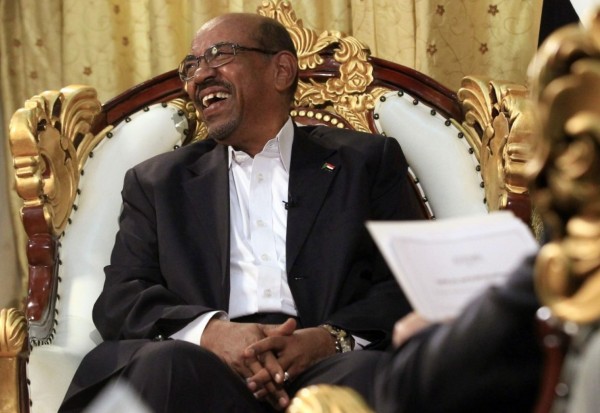PBS: Escaping Eritrea … [Read More...] about ካብ ውሽጢ ቤት ማእሰርታት ኤርትራ
5 insights into the mind of Sudan’s President Bashir, an accused war criminal
My colleague Kevin Sieff recently sat down with Sudanese President Omar Hassan al-Bashir, in what was Bashir’s first interview with an American media outlet in four years. Bashir, 70, is wanted by the International Criminal Court for his role in the genocide in Darfur, a restive Sudanese region where violence has displaced half a million people this year alone.

The Sudanese leader, though, has a different worldview and claims that all is well in Darfur and that the United Nations should abandon its peacekeeping operations in Sudan. He also went on to justify his repression of political dissent at home and pointed an accusing finger at the United States, which has imposed sanctions on the country. Here are some highlights from his interview with The Washington Post.
“The area of peace has expanded in Sudan to the extent that there is no need for these forces to stay,” Bashir told Sieff, adding that U.N. forces are so weak that “even a pedestrian with a knife can take [the peacekeepers’] weapons away.”
“Unfortunately, the Darfur problem has become an internal United States issue to serve political ends. During elections, it is an internal U.S. issue. Politicians use this to promote their agenda during elections,” Bashir said.
When pressed by Sieff, he blamed Washington’s lobbying interests: “All of them. Save Darfur and the rest of them. They collect so much money, but no money has ever been spent in Darfur. Otherwise it would be a paradise.”
Bashir rebuffed criticism of his government’s handling of mass protests in September 2013, when reports indicated hundreds were killed. He said the number was far smaller — 80 people — and went on to elaborate:
These 80 people were killed through their direct attack on the police stations and the courts. And all police stations across Khartoum were attacked, and they have occupied some of them. And all the courts in Khartoum were attacked. Some of them were burned. Of course this begs the question that if these events happened in the United States, would the government allow people to go and allow even a single police keeping security in the streets?
Then Bashir dropped the Ferguson card:
“Of course we have examples in the United States. Even someone in his car who is asked to raise his hands and refuses, he will be shot. We’ve seen it. Especially if he’s black.”
On China outdoing the U.S. in Africa:Bashir said Beijing is eating the United States’ lunch in Africa, exploiting the absence of American interests in Sudan — the result of Washington politics — for its own gain.
The Chinese came, they took the concessions. They achieved success in Sudan. This opened all the doors for the Chinese throughout Africa. They managed to go through Sudan and kind of spread. And, of course, we need to see very clearly the loss incurred on the United States by the economic influence of China. It is a loss. That’s why we say the sanctions hurt us. But they also hurt the United States.
On stepping down:Bashir has been in power in Sudan since 1989 and appears bent on clinging on to it. Yet he indulges in the same self-pitying world-weariness common among strongmen who makes themselves out to be martyrs for their nations:
Of course, when you look at the problems and the challenges in Sudan and I don’t think anybody would wish to be the president under such conditions… And I’m looking forward to the time they describe me as the former president. And, of course, there are pressures from my own party and other Sudanese parties also, and I succumb to those pressures, but I hope as soon as possible I can find an exit out of this.
Ishaan Tharoor writes about foreign affairs for The Washington Post. He previously was a senior editor at TIME, based first in Hong Kong and later in New York.
